Success in business often comes down to how effectively you can communicate and persuade. Known worldwide as “Doctor Persuasion,” my guest on today’s show, Dr. Yaniv Zaid, has mastered the art of influence through decades of experience as an economist, attorney, and international consultant. With eleven bestselling books translated into twelve languages and over one hundred twenty-thousand copies sold in Vietnam alone, his impact spans cultures and continents.
Our conversation explores the psychology of persuasion across various contexts, from selling cars to securing book deals at international fairs. Dr. Zaid shares his four-step framework for building trust and credibility with any audience, revealing how to craft messages that resonate at a subconscious level. He explains the critical difference between hard and soft selling techniques, and why stories are more powerful than direct pitches.
From media training secrets to building global tribes of loyal followers, Dr. Zaid breaks down complex persuasion principles into actionable strategies. His unique blend of Jewish wisdom and universal marketing principles offers a fresh perspective on influence and communication. If you’re ready to transform your ability to connect, convince, and convert by mastering the art of authentic persuasion, this is a powerful episode. So, without any further ado, on with the show!
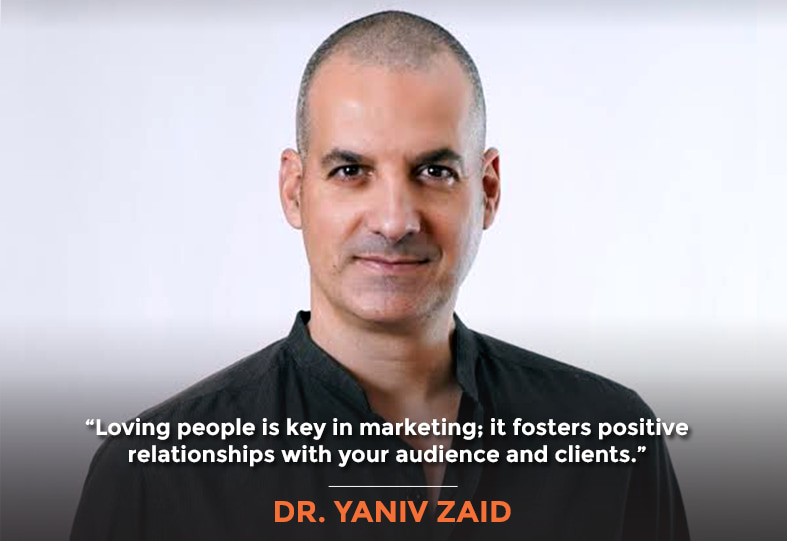
In This Episode
- [01:53] Stephan welcomes Dr. Yaniv Zaid after highlighting his extensive experience and impact in persuasion and influence. Yaniv shares his personal story, starting his business at 23, serving in the Israel Air Force, and his passion for debate and public speaking.
- [08:39] Yaniv reflects on his experience helping thousands improve their public speaking skills. He discusses the concept of soft sales and creating positive client experiences.
- [14:32] Yaniv outlines a strategy for crafting a concise and practical marketing plan that employees can easily execute.
- [22:48] Yaniv emphasizes the importance of media training and maintaining message consistency across various platforms.
- [25:10] Yaniv talks about the success of his books in different languages and his strategy for selling rights at international book fairs.
- [32:23] Yaniv describes his approach to building a global community by identifying his target audience and offering personalized attention.
- [37:47] Yaniv incorporates Jewish wisdom into his books and emphasizes the positive image of Israelis and Jewish people worldwide.
- [43:01] Yaniv shares his media strategy for getting featured on podcasts and other platforms.
Yaniv, it’s so great to have you on the show.
Likewise, Stephan. It’s a privilege for me. I’ve listened to many chapters of your podcast, and I enjoy it very much, so I’m happy to be here.
Yeah. So, I’d love to start with your personal story. Like, how did you end up where you’re at now? And by the way, you’re based not far away, probably just a few miles away from where I’m in Israel at the moment.
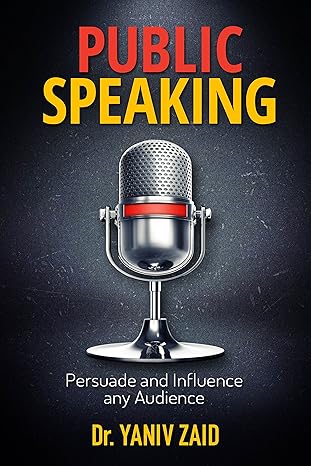
Yeah. So I’m 47 years old and live in Tel Aviv, Israel. I started my business when I was 23 and a law and economics student. When I joined the army, I was an officer in the Israeli Air Force. After that, I traveled to South America. I came back to Israel, started learning, and then joined the debate society at my university, Haifa University. Haifa is a city in the north of Israel. Then, I became acquainted with the world of debate.
And the debate is a competition in which you argue, two parties argue, and there are professional judges or the crowd that judges them. Then, I fell in love with this kind of system, the debate method.
Then, I realized that not many people know this method and only use it for competitions. Then I thought that the principles of the debate, you can implement it in every aspect of your life, business-wise, professional-wise, et cetera. So, I started lecturing about it during my years in university. And then I wrote a book. I wrote my first book, which is called Public Speaking. I sell it on Amazon and in many places.
It was published in 2004 when I was 27 years old. I immediately became famous in Israel and afterward worldwide. Then, I started teaching people how to talk in front of others and in front of clients. And since then, I have written, like you mentioned, 11 books. And I realized that my mission in life is to help people if they have important messages or important products or services, to help distribute them and sell them and market them.
Most people are great, but they don’t know how to present themselves or speak in front of the public, so they don’t know how to get investors in their startup. Maybe they are authors; they wrote a book, they don’t know how to market it, or they have a business or an idea for a business. They don’t know how to establish a business and grow it to success.
Nobody taught you how to speak, and nobody taught you how to market.
So, my mission in life is to help them. Something I realized that in all of my life, when I was in kindergarten, then school, then university and the army, nobody taught you how to speak, and nobody taught you how to market. For example, I studied law and economics.
So, in law, they taught me everything: criminal law, public law, and everything except three things. One is how to talk in front of the judges. Two is how to market myself as a lawyer, and three is how to write legal documents. Then you go out to the field, and you need to do three things. How do you market yourself? Talk in front of judges in a courthouse and write legal documents.
So you don’t actually have practical tools. I studied economics and the word marketing but didn’t hear about it for three years during my studies. And you’re talking about the economy degree, not the geographic degree or something like that.
So, the word money is only heard in theoretical discussions about something 100 years ago. So then I realized there’s a big gap between what you need in life, the skills you need, and what they teach you in the formal education system. So, my mission in life again is to narrow the gap, shorten your learning curve, and talk to the skills I teach public speaking, negotiation, marketing, and sales because nobody teaches us, not in business and our private lives.
Right. So you mentioned helping people get their important message out there and teaching them the skills to do that. What’s an important message that you want to get out there or that you have been getting out there in the world? Besides how to market, speak publicly, and do sales, what’s an important, maybe personal development message or something that you’re trying to change the world with?
You need to be very optimistic, even if the environment is pessimistic.
Great. So, first of all, be yourself. Don’t try to be someone else. It won’t sound authentic if you try to copy someone else, copy other businesses, copy the business model, or copy how other people talk. And today, we’re recording this in 2024 people; they have, I call it, a radar, bullshit radar or fake radar. They know when you are authentic and when you are not. And you need to be the best version of yourself. I know you also deal with self-development and personal development.
So this is the basis of it. And you need to take it to be the best version of yourself. Then, take your strong skills and develop them. I always tell my clients to be Batman and not Superman. You know now what is the difference? Because Batman and Superman are both superheroes, they look like human beings, but Superman is not actually human. He came from another planet, so if Superman had a workshop on how to fly, I would sit in the first row, write everything down, and they would explain everything to me. And I’ll go to the highest tower, go to the roof, check the wind, mind your first step or something like that.
And I will do everything he says. I am still going to fall from the building because I’m a human being, and he’s not. But Batman is a regular person who has not developed regular skills. So if Batman does a workshop on how to fly, I will sit in the first row and write everything, then he can tell me, “You know, Yaniv, I’m just like you. I even had the worst life because the Joker murdered my parents when I was young. And I fell into a cave, and I was afraid of bats and darkness. And then I taught myself how to fly. So let me teach you, and then I can relate to them.”
I can relate because they are like me. So be the best version of yourself, be Batman, not Superman. This is one tool’s main message I teach, and second of all, it is to be very optimistic and very mentally strong. Because I think it’s essential as a speaker today. You know we are lonely. It’s you against, not against, in front of the audience. And if you are a business owner, then you are lonely. You can have employees, partners, and colleagues, but at the end of the day, you are lonely at the top of the pyramid.
A concise yet accurate marketing plan allows flexibility for personal interaction while maintaining structure. Share on XSo you need to have lots of mental health and to be mentally strong. Especially by the way, in Israel, we have wars, and we have other challenges. So we have a good economy and a startup nation. But still, we need to be very strong and overcome lots of obstacles. And the environment, a lot of times, is very pessimistic.
All over the world, when you open the news, let’s say 8:00 pm, they will tell you a good evening, and then they explain to you for an hour why it’s a bad evening. So, you need to be very optimistic, even if the environment is pessimistic. Another thing is that this is something about marketing: selling the problem before the solution.
When people present themselves or their products and services, they sell their solutions and discuss their comfort zone. For example, if I’m an engineer, I will talk to you about the technical aspects, the code, and the software, not your client’s needs. So I always tell my clients, against your instinct, that if you would like to sell more and get higher prices and market yourself better, then you need to focus on the client, not on yourself. And you need to sell the problem before the solution. If you like, you can elaborate.
That’s great. Those are very powerful tips. So what would be maybe a case example of a big success, one of your clients perhaps, or a reader of your book published speaking, who went from maybe shy and anxious in front of audiences, not a very powerful speaker, to somebody who commands attention and respect in front of large audiences?
Great question. First of all, I have 21 years of experience and have consulted thousands of people and hundreds of companies on four continents. So, I have many success stories. You can check my website, and people can see testimonials and other information. But I guess I believe that everyone can improve themselves.
For example, if you talk about public speaking, then hundreds of people suffer from stage fright or don’t talk in front of people. They even ran off talking to people; they said no even if they had the opportunity.
If you would like to sell more, you need to focus on the client, not on yourself.
I told them how to talk about themselves again, not to be someone else, not to try to be, you know, Barack Obama or Bill Clinton or whatever character and role model you would like, but to be themselves.
And let’s say your grade is 50, and you would like to be 100. So maybe 100 you can be because nobody is perfect, but you can aim for 80. Okay? And if your basic grade in public speaking is, I’d say, 70, you can reach 90. So you need to improve yourself all the time. And you look at the gap to narrow the gap.
So I believe everyone can improve themselves, even my sales and marketing. Many people say that I don’t want to sell myself. I don’t feel comfortable marketing myself. I teach people how to do it in a soft way—soft sales, not hard sales.
Hard sales are when I tell you you should buy now differently than you should buy now. This is the product for you. Buy, buy, buy. And then it may be a little aggressive. Many people don’t feel comfortable with it, so I teach soft sales.
Soft sales, just. I’m not selling you anything. I will just tell you stories, and you will buy. And what kind of stories? My stories, personal stories, stories about the product, stories about the service, success stories, failure stories, whatever. I teach people how to do it. And then many people who were afraid of sales and marketing or didn’t feel comfortable learned a way how to do it.
When we talk about companies, I consult with companies, such as high tech, low tech, city halls, armies, factories, etc. I can succeed with everyone because the system is the same and based on your subconscious level. And no matter if you have 100 or 1,000 employees, I can build a system where you can teach your employees to speak in front of others, in front of other employees in the organization, or with clients outside the organization.
And it’s great. So if a company hires me to improve their sales and marketing and to increase their income, we’re probably going to do it sometimes in hundreds of percent or sometimes in 20-30% more, but have success because deleting things creates big results.
Yeah. So, what is your system? Can you walk us through your framework for making those kinds of improvements inside the company?
If you try to sell to everyone, eventually, you sell to no one.
Yeah. First of all, if we talk about companies, we need to identify the target audience because many companies just try to sell to everyone. If you try to sell to everyone, eventually, you sell to no one. You need to address target audiences. It’s called the avatar in marketing, the ideal client.
Ideal client, meaning that you will have fun working with this client, and also he can pay you, or he or she, or it can pay you enough money like you would like to charge. So you need to combine the fun and the money part. And you need to identify that sometimes you have a few avatars and ideal clients.
But first of all, we always start by defining the target audience when talking about lectures. I also work with authors, lecturers, and speakers all over the world. So, usually, my first question is, “Who is the target audience of your lecture?” This is what I ask you; I guess also, “Who is the podcast’s target audience?” And many times they just think about it for the first time, they say, “Okay, you know, my company gave me a presentation to build the lecture to provide, and I am now thinking for the first time who is the target audience.” So, you build all your lectures according to the target audience. So, this is step number one.
Step number two is to identify the main messages that you have in your company. What is your relative advantage as a person or as a company? And again, most companies or most people don’t know how to explain. Good. Sometimes, you are very good at what you do.
But if I tell you, “Okay, please explain to me what you do, or please explain to me why it’s important,” then you don’t know how to do it. And not the other three I mentioned sell the problem, not the solution. So always ask, and we will work on it. What are your client’s problems? Because the bigger the problem is, the more willing the client will be to buy from you.
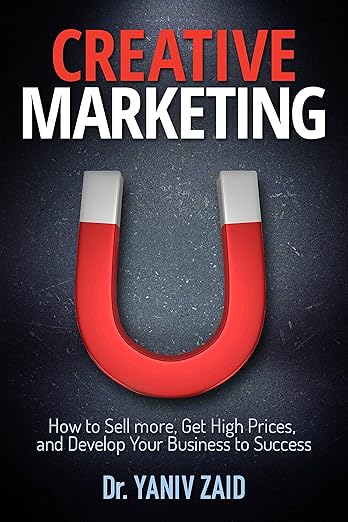
So, for example, if I give you a regular example, if you take a regular bouquet of flowers in a bridal bouquet, you know, flowers for the wedding, then if you take a regular bouquet of flowers, I can charge, let’s say, $100. Okay, but if I call it a bridal bouquet or flowers for the wedding, I can charge between $300 and $500, three to five times more for the same flowers.
Now, those are the same flowers. What is the difference? The need? Because when I buy flowers for the wedding, I’m not actually buying flowers, you know, I buy the winning image, the winning image of a queen for the day of the bride, you know, when all the vibe of the wedding and I buy the winning picture, they will take photos.
So, 10 years from now, the bride and groom will sit with their kids, and they will look at the photo album and say, “Oh, look how beautiful mommy was.” And 30 years from now, they will sit with their grandkids and say, “Oh, look how beautiful grandmother was.” So this is what I buy when I buy flowers. So again, if you identify what are the problems and needs of your clients, then you can relate to them when you present the solution, and then you can sell more, and you can sell higher prices, and then you can reach more people.
That’s great.
So those are the three main questions again. Who is your target audience, what are their problems, and what are your messages as a solution? Then we go to the marketing plan, where your ideal clients are, where they are online and offline. How do you reach them? The same messages by heart or by marketing writing. And then we can start to develop the marketing and sales plan.
And what does that plan look like? I interviewed Allan Dib, who wrote The 1-Page Marketing Plan. It was a huge bestselling book with hundreds of thousands of copies, maybe even a million copies sold. And that’s very appealing. That’s a great promise; that’s a great message to distill down your marketing plan into one page.
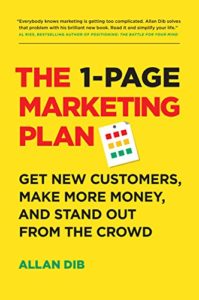
So. I’ve also seen marketing plans that are dozens of pages long, and they don’t get implemented. They’re overwhelming, and people get lost in them. So, I’m curious about what you consider best practice in terms of a marketing plan.
The best marketing plan is just once you identify the target audience and their needs again, listening to the client and learning what their needs and problems are because everyone is different. And then say I’ve got the perfect solution for you. Then, describe your product or services briefly as a solution to the problem, an answer to the need, or a cure for the clients’ pain.
So if you talk one-on-one, then we can talk, and I can listen to you, I can really listen. And I already know the list of needs and problems of all of my clients. So I can identify your specific needs. And then I can say this is part number one, only a few minutes. And then, I can address it and relate only to the specific problems you mentioned and talk about my products and services as a solution to your problems.
If you have objections, I can deal with them. But this is also something I teach. So, I write marketing scripts for companies in many different areas. Usually, my scripts are very short because we identify them again; once we identify all the criteria, I can build them shortly. So I believe in a short system, but a very accurate system for each company. And all the employees can learn it. It’s like milestones for the conversation. It’s like when you build and do 20 pages of script, everyone can learn it by heart.
And then they sound like robots, not like human beings. So, eventually, we’re talking about creating a relationship between you and the client. You need not know the basic rules, but I need to leave you a place for your personality to be out there. This is why my marketing plans and sales scripts were relatively short after I got to know the company.
Right. I’m curious to hear how a sales script might sound. If you want to role-play with me, I could pretend to be a potential customer, and you can just give us a heads-up beforehand about the scenario.
Okay, great. So, pick a product or a service.
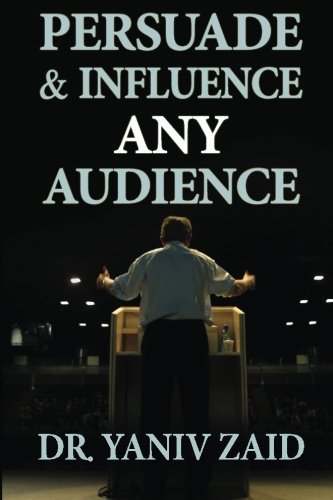
How about a car?
Cars. Okay, great. First of all, I have car companies; by the way, we talked about being authentic. So if, for example, I can sell cars, if I’m a salesperson, I can sell cars and perfumes, I can sell flowers, I can sell workshops. I don’t need to understand that I can sell cosmetic products. I don’t need to understand the chemical ingredients of cosmetic products or how the car’s engine works. I just need to understand why you need the car. By the way, I help sell cars, and I don’t know if I have cars, but I’m not interested in that matter. Although I am a guy, you know, so my focus was on why the client likes to buy the car. So, for example, if you come to the car agency, okay, then I will start asking questions.
For example, okay, What is important for you? Some open questions. What was important for you? What kind of car are you looking for?
Yeah, so I have a young son, and I want to make sure that there’s enough room in the car for him and any kind of sports gear or toys or anything like that that he wants to bring. I guess I need a larger car. It doesn’t have to be a huge van or something, but maybe an SUV would be more appropriate.
Okay, great. So you’re married and have one son? Do you have other sons or just this one?
I have grown daughters, so they live on their own.
Effective public speaking and soft sales are about storytelling, not aggressive techniques. Share on XOkay, great. So who will drive the car? You and your wife and your daughter. Okay, great. And you usually travel a lot. You live in the city, so do you drive far away with the car or just inside the city?
No. Vacations and different parts of Israel and so forth. Yeah.
So we’d like a lounge car that will suit you, your wife, and your daughter. Isn’t it important for you that the car be safe? Is that the safety of the car?
Yes.

Yes. Okay, great. So we’d like a safe car, a lounge car, and your wife would like to, too. Also, they need to love the car. You will use it mainly.
Oh, she’ll use it more than I will.
Great. Okay, great. So I have a car here. So let’s say that this is. I can ask more open questions, but I need to identify and get to know you a little bit to develop personal attention and chemistry between us. And then I can hurt some. So, among the list of, let’s say, 20 reasons why people buy a car, you have three. At least three.
Every salesperson, sales manager and marketing manager must consider themselves experts.
Identify at least three. One is safety, one is a large car, and number three is that it needs to suit you and your wife. Okay, so now I can say, “Okay, great. So I have a great solution for you. This is the model I recommend as an expert.” By the way, every salesperson, every manager, sales manager, marketing manager, they need to think of themselves as experts, and they need to deliver the message of the experts in front of the client. Because if you think that this is my first day on my walk, then you won’t take my tips. Which car to choose? But if you think that I have done it for many years, and I’ve seen many clients like you, I have many testimonials, positive testimonials, etc.
Then you say, “Okay, this guy knows what he’s talking about. “So I would tell you, “Okay, I can show you the car. I’ve been here for two years. I can tell you that this is the most popular car among families, especially with young kids. You see here, it’s large at the back. You have a great way for the baby’s chair. And it’s very safe. I can show you.”
And then, I can add another social proof. For example, I can show researchers that this car is very safe. I can show you testimonials of people who bought this car. I can tell you that this car alone, I sold 40 cars like this in the last month. So, I will give you some data that shows that this is something that operates at the subconscious level. I show you things, and then on a conscious level, you say, “Okay, great, I trust this car, or I trust this guy,” but I show you some data and then address your needs. Okay. And this is step number two.
Step one: I heard you. I listened to you. I identified your needs. Step two: I showed you how this car is the answer to your problems or your needs. And then I will tell you the price. Sometimes, I wait for you to ask me, “How much does it cost?” And then I can tell you the price. And then there are two options. The first option is that you buy.
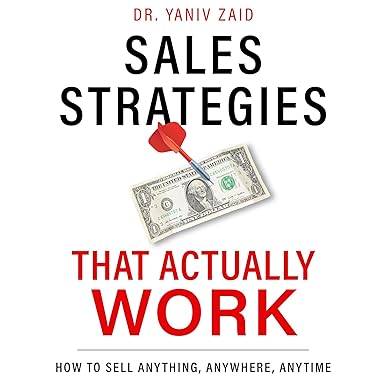
You buy the car because you like me. You trust me. I created a situation that you like and trust in me. And you see that this is exactly the solution you need. So you buy the car. The second option is that you have objections. For example, it’s too pricey for me. Or maybe not now, just interested in a car, but maybe not now, in two months from now, or maybe I don’t think it’s the right car for me or something like that.
Then, I can answer and address your objections. I teach this to companies and businesses, as well as to entrepreneurs and business owners.
Gotcha. All right. And how do you get somebody who is a rabid fan or an evangelist? They’re not just buying the car, widget, or whatever from you and then disappearing. They’re telling their friends all about you and sending you business.
First of all, every client and potential client I would like is something I teach all the time during my lectures and workshops: how to create a positive vibe and positive situation. Any situation, positive, let’s say feeling to the other party. So even if you buy the car and you didn’t buy the car, whatever, you need to feel good with me. You need to feel better with me after the meeting than before the meeting.
So, first of all, you need to create a positive experience. If a client doesn’t buy anything, I need to contact him or her to get your details. In your email, we talked about online marketing. Your email, mobile, name, other details. And then put it in my CRM. Then, I can contact you in a group where you can join my newsletter. I can enter you into my newsletter, and you will get newsletters. You will also get newsletters on my mailing list. Oh, to add you to my LinkedIn and Facebook channels, you will get some posts so we can be related.

And then once in a while, I can call you personally and say, “Hi, how are you? You are interested in the car. I can tell you that there is a new model now. Maybe it will suit you more,” or just “Hi, Stephan, how are you? How is your child? Did they grow? Did you buy the car eventually for someone else or something like that?” So I can be in touch with you and have a follow-up personally and in a group.
And if you bought the car, I would like you to be a good ambassador. And then I would like you to not only take the car, and people will ask obviously about the car, but also call you again and say, “Can you give me accommodation for the car after one month, two months? What do you think about the car? Maybe you can create a short video for me explaining the car. Maybe I can take a picture of you buying the car. Maybe your wife, I can talk to your wife and hear some feedback about the car.” Then, I can put this data and content on my website, LinkedIn channels, Facebook channels, YouTube channels, etc. So it’s something I can use.
That’s great. So let’s look at what it takes to be, let’s say, on TV or on the radio, like to be in front of media, not just on a stage, somewhere in front of an audience of people in person, but you’re actually beamed out to all these people’s homes on the television. Do you do media training for clients?
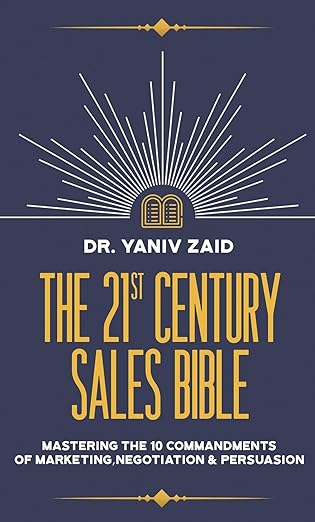
Yeah, also media training, which has the same message. You can deliver the messages online and offline, and you can interview. Today, podcasts are the new TV, so you must transfer your messages to every platform. By the way, I believe that as a business owner, you need to be on as many platforms as possible to have both a Facebook channel, a YouTube channel eligibility channel, and a podcast. Or you need to be a guest in other people’s podcasts and maybe, of course, if TV, radio, etc, have the same messages, the same way you deliver your message, you need to do it on all platforms.
Yep, that’s good advice. So, out of all the different social platforms, such as Facebook, Instagram, LinkedIn, TikTok, and YouTube, which are you most active on?
Today, I’m active on 15 platforms, including Facebook, LinkedIn, and YouTube, as well as Twitter, Telegram, Instagram, and TikTok. And I believe that if you create a video, you can upload it to as many platforms as possible. So, some of your clients will see you on all platforms. They are also friends of yours on LinkedIn and on Facebook, but someone’s just the CEO or hero on one platform. Also, we have mail; I have a strong mailing list of tens of thousands of people in Hebrew and English. So, I also use this platform. Also, books are a great platform because people buy your books in bookstores and can contact you if they would like. By the way, a book is also social proof.
So if people buy your book, they consider you an expert, and then they can come to you and ask you for a consultation.
Yep. So, have you been on television a lot?
Yeah, of course, of course. My books have been translated into 12 languages worldwide, including North America, Canada, the United States, China, India, Russia, and Vietnam. So, in each country where my books are published, I come to roadshows to promote the books, and usually, I appear on TV. So, I had the privilege of being on TV in many countries, including India, China, Vietnam, the United States, and some European countries.
Today, podcasts are the new TV, so you must transfer your messages to every platform.
The rules are the same, you know; the fact that my book was translated into 12 languages, including the three superpowers in the United States, China and Russia, which are very different from one another, shows that the subconscious level works the same and that people, they need the same messages all over the world. Maybe there is a little bit of adaptation in the content between one country and another, but the practical tips are the same if you appear on TV or in a podcast, even if it’s China, Russia, the United States or France.
Yep. So, how did you get these books translated into all those languages? Did you have to find translators on Upwork, or did you use AI to do translations?
So I use all metals, but usually, I do it in an old-school style. Since 2012, I’ve been traveling to book fairs and international book fairs all over the world. There are three main book fairs: London, Beijing, China, and Frankfurt, Germany. So I traveled there. And then I do. At each fair, I conduct hundreds of meetings with iterate agents and publishing houses and try to sell my rights. The terminology is that you have the rights to the book or the content, and they try to sell it to as many languages as possible. So this is how I began in 2012 when I started selling rights.
If you try to sell rights, it’s also social proof. Then you take the agreement with one country and go to other countries. Say, for example, you go to Taiwan and say, “I already signed with China, so what about you?” And then you leverage each achievement to gain more achievements.
So, you go to the Frankfurt Book Fair every year?
Every year since 2012.
Yeah,
Yeah, it’s pretty big. Like how big is it?
It’s the biggest one in the world. It has 3,000 publishing houses and literary agencies all over the world. And the crowd is something like the weekend, 300,000 people. It’s very, very big. You need to know where you’re going and who to target. All the, all the target audience. Immediately identify the target audience. For example, if you go to a big book fair with thousands of publishing houses, you need to identify who is relevant to you.
For example, I am doing business books, so I need to seek publishing houses that deal with business, how-to books, self-help books, self-development books, etc. And then, among 3,000, I can only focus on 300. So it’s 10%. And then I go to those 300, and I can get meetings that I’d say are 100 or 150 meetings. I’m a lot out of 300. So then I can do 100 meetings and relevant meetings during my five-day fair and not just wander around the fair and not know where to go or try to get to anyone. And like I say, if you try to get to everyone, you will eventually get no one.
People need to trust you, and that trust is supported by social proof rather than self-promotion. Let your achievements and endorsements speak for themselves. Share on XSo the book fair was just last month, right?
Yeah, yeah, the last fair was last month. Since 2012, I’ve been in Frankfurt each year. So this was my 10th or 11th book fair in Frankfurt. And for most of the bills I closed for my books, I closed them there in Frankfurt. This is actually the biggest marketplace for selling and buying rights of books. So you need to be there. So, if you take in general what we talked about, sales and marketing. So this is a good example; it’s a good case study because I have a book, and this is my product. I would like to sell the book to as many people as possible to duplicate myself and sell the book to as many languages as possible.
So I’ll say, “Okay, where is my ideal audience?” The ideal audience or client is the publishing household on the right, where all my clients are. So I said, “Okay, I can go to each country and meet thousands of publishing houses, but I can also go to one place in the world where all of the biggest publishing houses will be in one place for a few days.” And I go there, and then I conduct many meetings, and I also deliver the message because you need to know what they are looking for.
The subconscious level works the same, and people need the same messages all over the world.
So basically, usually they’re not looking just the good content, they’re also looking to see that you’re a good presenter, that you can help promote the book, that you can help them online and offline, that we also have a big community that you can share their success, that if they publish your book, for example, in an Italian publishing house. They will publish you in Italy; then you can go to Italy and help them promote the book. So I care about this a lot, especially when you have such a competitive book market, but it’s relevant for any other market.
How did you get a hundred meetings before arriving at the book fair?
So I didn’t get 100 before. I send emails to hundreds of publishing houses, and then just a few respond, say 3, 5, 8. Then I came to the conference, and they also had a list of relevant publishing houses, and they were just going around and looking for them. When I go, I go to the booth, then to the rights managers or the editors. If I have an appointment, it’s great. If not, I try to set an appointment online simultaneously. And if they say, “Okay, not today, we’re busy” “Okay, tomorrow, I’m also here, so maybe we meet tomorrow.” Most of them are very positive once you meet them there.
I strongly believe in, you know, boots on the ground. You know, I can talk on Zoom. I can send emails; I can, you know, hide behind the screens. Okay. But if they meet you face to face, you will most likely get what you want. And then again, if we start the conversation, I will try to understand what kind of books they are looking for, and then I can explain why my book is relevant to them. If it’s relevant, yeah.
Have you worked with literary agents? Do you recommend a literary agent to somebody who wants to get a book published?
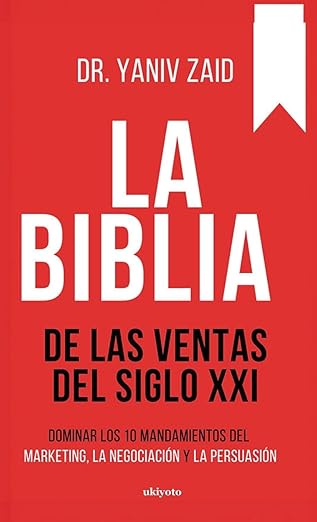
Yeah. First of all, in Israel, the authors are usually contacted directly by publishing houses. But it’s not regular in the United States, Europe, and Southeast Asia. Usually, you turn to a literary agent, and then they seek for you, you know, publishing houses. So, yeah, I recommend working with your agents, but not in an exclusive way. For example, if you have literary agents that represent you, try to see relevant relative advantages with the countries that are looking at which they are strong. And then they can help you in those countries. In other countries, you can give it to another agent or use another agent in the same country because, eventually, you will need only one publishing house in each country if you’re talking about books.
Right. So, what’s the biggest success for you in terms of those 12 books that you’ve written? And what market, country or language has been the most successful?
Surprisingly, in Vietnam, I sold the most copies I have sold so far: more than 120,000 copies in seven years.
Wow. Good for you.
Yeah, yeah. It’s a country where Vietnam has more than 100 million people, and its economy grows very fast, 9% a year. They are very eager to learn from both Western and Jewish knowledge. So, the book was a huge success in China and the United States. I’m doing a lot of promotion for the book, including what we’re talking about now. However, I think my biggest accomplishment is that I managed to sell the same book to many countries again, and the same book was successful in China, India, Russia, and the United States. For me, it’s great. For me, it’s a test that I passed and managed to describe in a formula that is acceptable worldwide.
That’s great. Well, congratulations on your success with all that.
Thank you very much.
Yeah. So, let’s talk about how to build a community. What bestselling author Neil Strauss describes as a street team, or what Kelly calls a tribe of your 1000 true fans. What would be the secrets to success? To get that core team of people who are willing to call, let’s say, bookstores and say, “Hey, is Yaniv’s book out yet? Can I come and pick it up?” Or maybe you could call the TV and radio stations and rave about you as an author and a speaker. So, how do you build that community?
Okay, so first of all, we talked about defining your target audience. So, who do we like to be in your community, by the way? I like the word tribe. I prefer community. But the tribe is great because people come again, and they, you know, the. You, they go. It’s, you know, basketball. There is a phrase: a go-to guy. Go-to-guy means that when the offense is stuck, you have a few seconds on the clock, and then you will pass the ball. You know, usually, it will be the scorer in the team or something like that.
So, I would like to be the go-to guy when we talk about marketing, sales etc. So, I would like as many people as possible to consider me the biggest expert. So they have a question. If they have questions in those fields, they will ask me; maybe I don’t know. So, I will refer to someone else. Maybe I’ll look for the answer. But the first call will be to me or the first email.
So, the way to build a community is to identify who you like. Second, you need to identify where they are offline and online. You know which platforms your followers are on and what messages are relevant to them, and you start building the community in many steps. I believe that a single drop, plus a single drop, plus a single drop, creates an ocean.
You don’t need to be the friend of 1000 people, but you need to make them think you are their friend.
So it’s not like you have a magic trick that you will do something, one thing, you join one podcast, and then everyone will come to you or just be on Facebook. It’s enough. Usually, you need to be on as many platforms as possible for a long time. However, the key is a relationship because you need to establish a relationship between you and your followers to provide personal attention to them, even an appearance of personal attention.
You don’t need to be the friend of 1000 people, but you need to make them think that you are their friend, to write messages that they can relate to if they address you by email or by Facebook or by LinkedIn, to call them back to answer them, to answer the questions or stuff like that. So, there are four steps before people buy from you for the first time. The four steps are known, like trust and then buy.
Step one is that people need to get to know you, that you exist, that you’re in the market, and that you’re relevant to them. Because if they don’t know you, it doesn’t matter if you are cheap or expensive or if you know you are close by or far away, they need to know you. So, the first step is for them to know you.
After they know you, they need to like you. Now, how can they like you if they haven’t met you in person or they haven’t bought from you yet? They can like you if you see a movie or a short video on Facebook, TikTok, or Instagram. They would like you if they heard a podcast with you, a chapter, or an episode with you. They can like you if they hear the lecture; they are in the audience, and they hear some lectures, so they can like you. So step two is that they need to like you and have a personal experience with them.
Then, step number three is that they need to trust you. They will say, “Okay, I know this guy, okay, like this guy, but how can I know that he is an expert like he’s saying?” And here comes a very practical tip in marketing. It’s called social proof. Social proof is if I talk about myself, I’ll say that I am very good at what I do and I am an expert.
Then, obviously, it doesn’t sound objective. It sounds objective because I’m talking about myself. So, obviously, I’m going to speak highly of myself. And if I try to sell you a product, and I’m a marketing person, I will say you should buy this chair, for example, the chair behind me. You should buy this chair. It’s a great chair. So, obviously, at the subconscious level, we say, “Okay.”
And you say to yourself, but he says chair, the chairs, this is what he does. He gets a commission for each sale. So this is why he says it’s good. So you won’t believe me because it doesn’t sound objective or so subjective. But if I could tell you social proofs about the chair, for example, I sold this chair alone, you know, 50 units this week or some celeb clients that you know, I will say, “They already bought the chairs for me, or I use this chair, or I will show your research that the chair is very healthy or something like that.” And then you will probably buy the chair and feel more comfortable.
So, step number one is that people need to get to know you. Step number two: they need to like you. In step number three, they need to trust you. Only after steps one, two, and three, then comes step number four, and they will buy you for the first time.
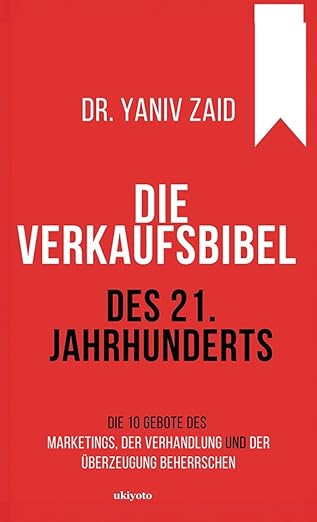
When they bought from me for the first time, I would like to join my tribe and my community. I will get the details we mentioned earlier. I will follow up with them. I will send them emails, I will send them newsletters, and I will maybe offer them friendship on Facebook or LinkedIn. So would that be relevant to their life? So, I will be the first choice when they need to ask about marketing and sales negotiation.
Yeah. And how big is your tribe?
In Hebrew, total? First of all, I have my books; I have sold more than 300,000 copies worldwide. Most of the people I have contact information in Hebrew. I have something like 40,000 people in the rest of the world. I have a similar amount of people. If you talk about social media, I have a total of a few tens of dozens of people. And I always try to get to more people, to reach more people. It’s part of the reason I’m participating in many podcasts. I would like to provide value to as many people as possible.
Some of them will hopefully join my community and my tribe, and they will listen to me. First of all, they will get free information. On my website, Dr Persuasion, I have many videos, articles, and content. And some will say, “Okay, I heard enough, or I listened enough. I like it. So I will buy your book or will come to your conference, and then I will come, I will buy your workshop or lecture, and then I will take you as my consultant. And then I will come. I will develop a long-term relationship with you and be a lifelong customer. Each time I need something, I will call you, or if I need to write a script, I will contact you to write the script.” So this is one step, the time, one stone, after one stone, above one stone.
Then you can build a big wall.

Right? So, how do you incorporate Jewish wisdom into your books? And because you mentioned in Vietnam, you’ve sold over 100,000 copies, and people like Jewish content there as well as marketing and business stuff. So, do you incorporate those together into the same books? How does that work?
First of all, I’m proud of Israel all over the world, and I am proud of the Jewish people, a Jewish person all over the world. I realized in my wandering all over the world that people, they love Israelis, they love Jewish people in Southeast Asia, in the Far east, they even admire Jewish people. Most of them didn’t meet Jewish people. But there is a myth about, the Jewish wisdom, negotiation, parenting, and memory. When you say you are Jew, when you’re Jew, immediately we have a positive image. Also, the people who don’t like us fear us. You know, they think they are smart. So, obviously, I do business and talk about money, sales, and marketing.
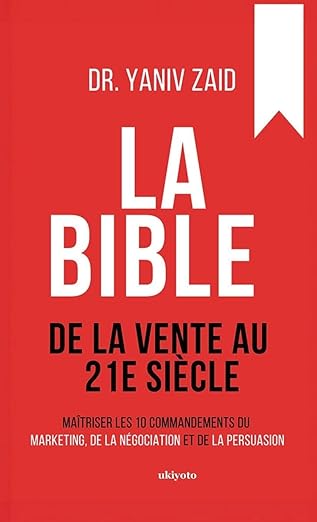
Even people who don’t like us who think that Jews are good with money—obviously, I’m talking about money; it’s a positive image. So, I try to consider the ones who love us. And I think there is a very positive image of Israel worldwide and the Jewish people.
Let’s discuss a very important concept in Judaism, and that’s how it relates to marketing. I specifically want to discuss “tzedakah”, or charity and tithing, and how important it is in Judaism. It really is a foundational cornerstone of success for business owners, and I’d love to hear more from you about that.
First of all, in Hebrew. The common behavior is if you have profit, you can donate 10% of your profit. You know, it’s called Maaser. 10% of your fortune and your revenues will be donated to others, and then, you know, the universe will treat you well, and good things will happen. And I believe that this is part of being in a community, not just your family, then your city, then your country, then the world. If you’re fortunate enough to succeed in life, it’s not just about you. It’s also about the ecosystem. For example, to pay taxes.
I strongly believe in paying taxes and enjoy paying taxes because paying taxes means I’m successful. And I also say that I live in a Western country, a modern country, a liberal country. So we have a unique ecosystem in Israel, for example, and also in the United States, that if you succeed, then you. You pay lots of taxes. Because, again, there is a system that supports you. If I did the same thing and were born in Africa, I wouldn’t have the same conditions here. So also, at Zakao Donation, I work with an organization. I teach them how to get their donors.
I can tell you that in sales and marketing, the same principles also apply here because you need to know how to convince and persuade people to donate. People donate money for many, many different reasons. Emotional reasons, practical reasons, tax reasons, and many other reasons. So you need to identify the reasons for this person, and then you can tell them how the donation will solve their problems or answer their needs. And the bigger the problem, the more money I’m willing to donate, the bigger the need, the more money I’m willing to donate to others. So obviously, I believe strongly in helping and donating to society, but I also need to convince people, and in sales and marketing, it’s the same.
Have you ever seen it? It’s a short documentary from Berel Solomon called In God We Test.
Yeah.
Yeah. So it’s a great video. So, he explains tzedakah and how important it is. And it’s not about looking backward at what you made over the course of this year and then taking 10% and then donating that to charity. It’s about looking forward to what you believe and having faith that you can make and will make, God willing, and then 10% of that, and then you pledge that, and you start donating that weekly or monthly, the portions of that that add up to the 10% of the year ahead. And magically, miraculously, this is how money works. Yeah, you make that kind of money that you’d never thought possible before, but you committed and pledged to start donating to that level. That’s amazing.
Yeah. It’s amazing. It’s part of the Jewish ecosystem; you know that we help each other, and it’s worldwide. We help each other. So, this is part of the magical secrets of Jewish businesspersons. But again, I see myself as not just Israeli Jewish, but also a citizen of the world. So, I talk about global principles. I obviously bring a unique perspective of myself as the Israelis are a Jewish people, but the principles are the same. And if I can use it positively, the fact that I was born in Israel, I’m grateful.
Yeah. Now, here’s my last question before we wrap up here. So you’re on the show because you had somebody pitch me to be on your show. I had not heard of you before, and you said earlier that podcasts are an important part of your media strategy. It’s not just about getting on TV. It’s about getting on podcasts. And I’m curious about how you find shows and how you utilize a team because it wasn’t you who pitched.
The secret number one for marketing essays is to love people.
Yeah, I agree. But first of all, it’s the same way as marketing your books. First of all, you identify the target audience. So once I realize I need to be on as many worldwide podcasts as possible, European and American podcasts, I will lead a list of categories I would like to be in, for example, marketing, sales, negotiation, etc. And then I also believe in outsourcing. So, like, I use literary agents to find me publishers. Then, I used a company called Ultrasound Mission. They work with authors.
They actually approached me when my book was published in the United States, and they offered their help to connect me with a relevant podcast. So, we sat together, built marketing materials, and created a list of relevant podcasts. Then, they started looking according to this list, and your podcast is called Marketing Speak. So obviously, I guess this is why they found you: because they looked for keywords like marketing and sales, negotiation, public speaking, etc. And then they show me the relevant podcast and say, “Okay, you need to approve if you’d like to be on those podcasts.” By the way, we talked about social proof. This is the ranking of those podcasts. This is the host’s resume, so you need to approve it. Then I looked at the link and saw your podcast.
I listened to a few chapters. I enjoyed it very much. I approved the podcast, I confirmed, and then we scheduled the interview. And for me, I went twice. First of all, I have the privilege of delivering the message to as many people as possible, to your audience as well, and to people who don’t know me yet, like you didn’t know me before. Second of all, I can do some marketing on the way, and then maybe a few percent of the people who will listen to us now will contact me from my email. I will give you my email or my website, or they will buy my book, and then, I can grow my community, grow my tribe, and meet more people. I think the secret number one for marketing essays is to love people.
If you love your audience, they will love you back.
You need to love people. You need to love your audience. I always say you need to love your audience for lectures on speakers. If you love your audience, they will love you back. And for salespersons, I say, and marketing managers, you need to love your clients. If you love your clients, they will love you back. Because if you handle people all day, you must love this job, and you must love people. And I will tell you, because I love my clients, I will share my private information with you.
So I have a direct mobile, it’s 972-548-001200, and I have a direct mail and an email. It’s [email protected] and also my website, it’s Dr Persuasion, so you can check my website, YouTube, @Yaniv Zaid, and you’ll see hundreds of short videos that will provide you lots of value. Feel free to contact me by email or mobile; I will be happy to answer any questions you may have.
Awesome. Thank you for sharing your wisdom, great tips and ideas and for walking us through your strategies for book fairs, building communities, getting books translated and all that. That’s really great stuff. Thank you.
Thank you very much, Stephan. It was a privilege to be with you, and hopefully, we can grow together. This is the beginning of a beautiful friendship.
Yes, for sure. All right, and thank you, listener. Now, get out there and make it a great week. Reveal some light in the world, and we’ll catch you in the next episode. I’m your host, Stephan Spencer, signing off.
Important Links
Connect with Dr. Yaniv Zaid
Books
Business/Organization
People
Previous Marketing Speak Episode
YouTube Videos
Your Checklist of Actions to Take











About Dr. Yaniv Zaid
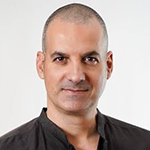
Dr. Yaniv Zaid is known to the world as “Doctor Persuasion.” Economist and attorney Dr. Yaniv Zaid acts as a business consultant to government departments, private firms, and public organizations. He holds a PhD in law and utilizes his rich knowledge and experience to help others achieve success.
Dr. Zaid is recognized worldwide as an expert in the fields of public speaking, marketing, sales, negotiation and persuasion, and placed 3rd in the 2003 world ranking of public speakers.
Following 20 years of international success, Dr. Zaid is the author of 11 best-seller books –including Public Speaking, Creative Marketing, and Sales Bible –and is often invited to lecture and consult around the world.







Leave a Reply